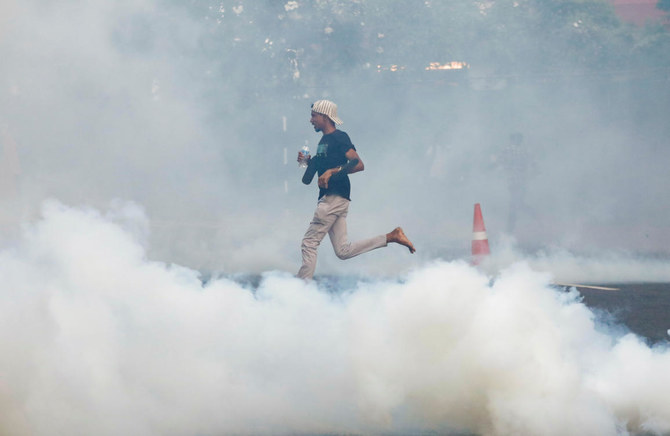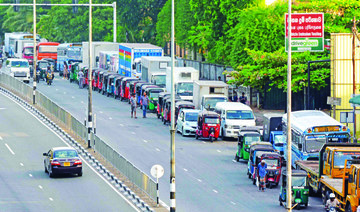COLOMBO: Sri Lanka’s Prime Minister Ranil Wickremesinghe said on Saturday he is willing to step down and allow an all-party government to take over after thousands of protesters descended on the capital Colombo in one of the largest anti-government marches in the crisis-hit country this year.
The bankrupt country of 22 million people is facing its worst economic crisis in memory and has been unable to pay for essential imports for months due to a severe dollar crunch caused by economic mismanagement and the aftermath of the COVID-19 pandemic on its tourism-dependent economy.
Struggling under extreme shortages of petrol, food and medicines, which forced schools to shut and led to record inflation that reached 54.6 percent in June, Sri Lankans from across the country marched to Colombo on Saturday, demanding the resignation of President Gotabaya Rajapaksa.
The mass protests, which saw hundreds storm into the president’s house and nearby office in Colombo, prompted Wickremesinghe to call for an emergency meeting of political party leaders, as they urged him and Rajapaksa to resign immediately.
Wickremesinghe, who took over in May, said he is willing to give up his premiership.
“To ensure the continuation of the government including the safety of all citizens I accept the best recommendation of the party leaders today, to make way for an all-party government,” Wickremesinghe said on Twitter.
“To facilitate this I will resign as prime minister.”
Wickremesinghe’s resignation will only take place after an all-party government is formed and parliament secures a majority, a statement issued by his office said, and he is expected to stay in office until then.
Though Sri Lankans have been holding protests outside of the president’s office since March, Saturday’s protests are one of the biggest demonstrations yet, as tens of thousands took to the streets to express their anger over Rajapaksa, the leader they hold responsible for the island nation’s economic meltdown.
Protesters had come from other parts of the country and abroad, marching into the government district in the capital and breaking police barricades, while shouting slogans against the president, such as “Gota go home.” Hundreds of people eventually breached parts of the presidential complex, with footage on social media showing people inside as they waved flags and milled about on the grounds.
“We came here to participate in the protest,” Mohammed Hussain Mohammed Manasique, a Sri Lankan who was working in Kuwait and flew into Colombo on Friday, told Arab News.
“Our families are suffering here without proper food, transport and education.”














